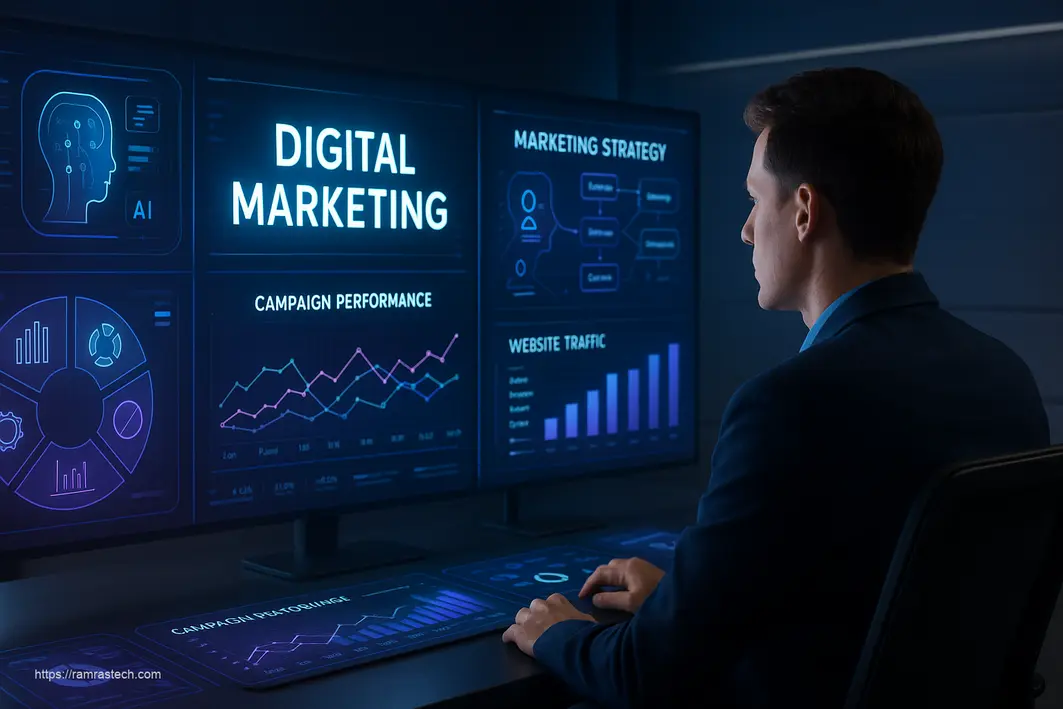10 Proven Digital Marketing Strategies to Dominate 2025

In today’s hyper-connected world, having robust digital marketing strategies isn’t just nice to have—it’s essential for survival. Whether you’re a startup finding your footing or an established business aiming to maintain market dominance, the digital landscape offers both incredible opportunities and daunting challenges. But here’s the thing: as digital channels multiply and consumer behaviors shift, keeping pace with effective digital marketing strategies has become more complex than ever.
With 63% of businesses increasing their digital marketing budgets for 2025, according to recent industry reports, the competition for online visibility and customer engagement is intensifying. If you’re not continuously refining your approach, you risk being left behind while your competitors surge ahead.
Let’s dive into the digital marketing strategies that are proving most effective as we approach 2025, with actionable insights you can implement right away.
Understanding Digital Marketing Strategies: The Foundation of Online Success
Digital marketing strategies are comprehensive plans that outline how businesses leverage online channels to achieve specific goals—whether that’s boosting brand awareness, generating qualified leads, or increasing sales. Unlike traditional marketing, digital strategies provide unprecedented targeting capabilities, real-time analytics, and the flexibility to adjust tactics based on performance data.
What makes a digital marketing strategy truly effective? It’s not just about being present on multiple platforms—it’s about creating a cohesive experience that guides potential customers through their buying journey with meaningful touchpoints along the way. The most successful digital marketing plans integrate various elements—from content marketing and social media to SEO and email campaigns—into a unified approach that reinforces your brand message across all channels.
According to Deloitte Digital’s 2025 Marketing Trends Report, 78% of businesses now consider their digital marketing strategy to be either “very important” or “critical” to their overall business success. This represents a 23% increase from just five years ago, highlighting how digital marketing has moved from a supplementary activity to a core business function.
10 Powerful Digital Marketing Strategies to Implement in 2025
1. Advanced SEO: Beyond Traditional Keywords
Search engine optimization has evolved dramatically in recent years, and in 2025, it’s about much more than just keywords and backlinks. Today’s SEO encompasses a holistic approach that includes:
- Semantic search optimization: Creating content that addresses user intent rather than just matching keywords
- Voice search readiness: Structuring content to answer conversational queries as voice assistant usage continues to surge
- Visual search compatibility: Optimizing images and implementing schema markup to capture traffic from visual searches
- AI-powered SEO tools: Leveraging artificial intelligence to identify content gaps and optimization opportunities
As Google’s algorithms become increasingly sophisticated, focusing on user experience metrics (like Core Web Vitals) and content quality is now essential. In fact, websites that score in the top 10% for Core Web Vitals see 27% higher conversion rates on average.
“The future of SEO is about creating content ecosystems that serve users at every stage of their journey, not just targeting individual keywords,” notes a recent Digital Marketing Institute report.
For businesses looking to strengthen their SEO foundation, consider checking out our guide on Technical SEO Basics for Beginners to ensure you’re building on solid ground.
2. Content Marketing: Quality Over Quantity
Content marketing remains the backbone of digital marketing strategies, but the approach has matured significantly. Rather than producing high volumes of content, successful brands are focusing on creating fewer but more valuable assets that:
- Address specific pain points in the customer journey
- Demonstrate genuine expertise and thought leadership
- Incorporate multimedia elements (video, audio, interactive components)
- Provide actionable insights rather than general information
The most effective content strategies now include content clusters—comprehensive resources around central topics that establish authority in specific areas. This approach not only serves users better but also strengthens your site’s topical relevance for search engines.
Kantar’s marketing research shows that brands publishing fewer but more substantial content pieces (1500+ words) see 3.5x more traffic and 4x more shares than those focusing on shorter, more frequent posts.
For a deeper dive into effective content marketing approaches, our article on Why Businesses Require Content Marketing explains the strategic value of this essential digital marketing component.
3. Omnichannel Social Media Marketing
Social media platforms have fundamentally changed how digital marketing strategies are formulated and executed. The most successful brands in 2025 are taking an omnichannel approach to social media that includes:
- Platform-specific content strategies: Tailoring content formats and messaging to match the unique environment of each platform
- Community building: Fostering active communities rather than just broadcasting messages
- Social commerce integration: Turning social platforms into direct sales channels with in-app purchasing
- Social listening and engagement: Using social conversations to inform product development and marketing strategies
What’s particularly interesting is how social platforms have evolved into primary search engines for younger demographics. According to WSI World, 54% of Gen Z users now turn to platforms like TikTok and Instagram before Google when researching products or services.
“The lines between social media, entertainment, and commerce have completely blurred,” explains a Deloitte Digital researcher. “Brands that treat social as merely a promotional channel are missing the bigger opportunity to engage with customers where they’re already spending their time.”
For small businesses looking to maximize their social media impact, our guide on Unlocking the Power of Social Media Marketing for Small Businesses offers practical strategies tailored to limited resources.
4. Personalized Email Marketing Automation
Email marketing continues to deliver one of the highest ROIs of any digital channel—an average of $36 for every $1 spent, according to industry benchmarks. However, the most effective email marketing strategies in 2025 go far beyond basic newsletters and promotional blasts.
Today’s winning email strategies leverage:
- Behavioral segmentation: Targeting users based on their specific actions and engagement patterns
- Dynamic content personalization: Customizing email content based on user preferences and behavior
- AI-powered send time optimization: Delivering messages when individual recipients are most likely to engage
- Interactive email experiences: Incorporating polls, quizzes, and other interactive elements within the email itself
The key difference between average and exceptional email marketing programs is the depth of personalization. Generic blasts are increasingly ineffective, while hyper-relevant messages that anticipate customer needs can achieve open rates above 60% and conversion rates up to 5x higher than industry averages.
For businesses looking to enhance their email marketing capabilities, our article on Top 5 Email Marketing Tools for Small Businesses reviews the most effective platforms for businesses with varying needs and budgets.
5. Strategic Influencer Partnerships
Influencer marketing has matured from a experimental tactic to a cornerstone of many digital marketing strategies. What’s changed is how brands approach these partnerships:
- Micro and nano influencers: Prioritizing engagement rates over follower counts
- Long-term ambassador relationships: Building deeper partnerships rather than one-off promotions
- Co-creation of content: Involving influencers in product development and authentic storytelling
- Performance-based compensation models: Structuring deals around concrete results rather than just exposure
What makes influencer marketing particularly powerful is its ability to combine the trust of word-of-mouth recommendations with the scale of digital media. According to EEDigital, 61% of consumers trust influencer recommendations, compared to only 38% who trust brand-created content.
The most successful influencer campaigns are those that prioritize authenticity and alignment with brand values. Forced partnerships that feel inauthentic to an influencer’s audience typically underperform and can even damage brand perception.
6. Video Marketing Across Multiple Formats
Video continues to dominate consumer attention online, with the average person now watching 100 minutes of video content daily. What’s evolved is the diversity of video formats that effective digital marketing strategies incorporate:
- Short-form content: Creating snackable videos optimized for platforms like TikTok and Instagram Reels
- Long-form thought leadership: Developing in-depth video content that establishes expertise
- Live streaming: Engaging audiences in real-time with Q&As, product launches, and behind-the-scenes content
- Shoppable video: Incorporating direct purchase functionality into video content
The key to successful video marketing lies in adapting content to both platform requirements and audience preferences while maintaining consistent brand messaging across formats.
“Video is no longer just one content type among many—it’s becoming the primary medium through which consumers discover and evaluate products,” notes a Kantar research report, which found that brands incorporating video into their digital marketing strategies see 49% faster revenue growth than those that don’t.
For businesses looking to enhance their video marketing efforts, our guide on An Effective Video Marketing Strategy for Businesses provides a framework for creating compelling video content that drives results.
7. Data-Driven Paid Advertising
Paid advertising remains a critical component of digital marketing strategies, but the approach has become increasingly sophisticated. The most effective paid campaigns now feature:
- AI-powered audience targeting: Using machine learning to identify and reach the most valuable prospects
- Cross-channel attribution modeling: Understanding how different paid channels work together to drive conversions
- Creative optimization through A/B testing: Continuously refining ad creative based on performance data
- Automated bidding strategies: Leveraging algorithms to maximize campaign efficiency
What separates successful paid advertising from wasteful spending is the rigor of the testing methodology and the sophistication of the targeting approach. According to the Digital Marketing Institute, advertisers who implement systematic creative testing see up to 50% higher conversion rates and 40% lower cost per acquisition.
For businesses looking to maximize return on their advertising investment, our article on How to Achieve Maximum ROI with PPC Advertising provides practical strategies for optimizing paid campaigns.
8. Conversational Marketing and AI Chatbots
The rise of conversational marketing represents one of the most significant shifts in how businesses engage with prospects online. This approach focuses on real-time, one-to-one interactions through:
- AI-powered chatbots: Providing 24/7 personalized assistance and qualification
- Live chat integration: Enabling human agents to step in for complex conversations
- Messaging app marketing: Meeting customers on platforms they already use daily
- Voice-activated interactions: Preparing for the growth of voice-based commerce
The impact of conversational marketing can be substantial—businesses implementing these tools report 42% higher conversion rates on average, according to Deloitte Digital research. The key is striking the right balance between automation and human interaction, using AI to handle routine inquiries while ensuring seamless escalation to human agents when needed.
For businesses interested in implementing chatbots as part of their digital marketing strategy, our guide on How to Build Chatbots for Lead Generation provides a step-by-step approach to creating effective conversational experiences.
9. Customer Experience (CX) Optimization
Customer experience has moved from a separate discipline to a central consideration in effective digital marketing strategies. The most successful companies are:
- Mapping comprehensive customer journeys: Understanding every touchpoint across marketing channels
- Identifying and eliminating friction points: Making interactions as seamless as possible
- Personalizing experiences at scale: Using data to customize interactions without becoming intrusive
- Measuring experience metrics: Tracking satisfaction, effort scores, and other CX indicators
The ROI of customer experience initiatives can be substantial. According to WSI World research, companies that prioritize CX in their digital marketing strategies see 60% higher customer retention rates and 140% higher customer lifetime values.
“Marketing teams are increasingly being held accountable not just for acquisition metrics, but for the entire customer experience,” notes a Deloitte Digital analyst. “The walls between marketing, sales, and service have largely disappeared in the most competitive organizations.”
10. Marketing Automation and Integration
The complexity of modern digital marketing strategies has made automation essential for efficient execution. Leading companies are:
- Implementing comprehensive marketing automation platforms: Coordinating campaigns across channels
- Creating trigger-based customer journeys: Delivering the right message at the right moment
- Integrating marketing systems with CRM and sales platforms: Ensuring data flows freely between systems
- Establishing closed-loop reporting: Tracking the customer journey from first touch to purchase and beyond
The impact of well-implemented marketing automation can be transformative. According to the Digital Marketing Institute, businesses using advanced automation see 14.5% increase in sales productivity and 12.2% reduction in marketing overhead.
For businesses looking to implement or enhance their marketing automation capabilities, our article on Ultimate Guide to Affordable Marketing Automation for SMEs provides practical guidance tailored to businesses with limited resources.
How to Develop Your Digital Marketing Strategy
Creating an effective digital marketing strategy isn’t something that happens overnight. It requires a methodical approach:
1. Conduct a Digital Marketing Audit
Before implementing new digital marketing strategies, assess your current position:
- Which channels are currently driving the most traffic and conversions?
- How does your performance compare to competitors?
- What digital assets do you already have that could be leveraged more effectively?
- Where are the most significant gaps in your current approach?
A thorough audit provides the foundation for strategic decisions by identifying both strengths to build upon and weaknesses to address.
2. Define Clear Objectives and KPIs
Effective digital marketing strategies are built around specific, measurable goals:
- Are you primarily focused on brand awareness, lead generation, or direct sales?
- What specific metrics will you track to measure success?
- What timeframes are you working within for achieving these objectives?
- How do these marketing goals align with broader business objectives?
The more precisely you define success, the more effectively you can design digital marketing strategies to achieve it.
3. Develop Buyer Personas
Detailed buyer personas are essential for targeting and messaging:
- Who are your ideal customers demographically and psychographically?
- What challenges are they trying to solve?
- Where do they spend time online?
- How do they make purchasing decisions?
Deep understanding of your audience enables you to create digital marketing strategies that resonate rather than just reach.
4. Map the Customer Journey
Identify how prospects move from awareness to purchase:
- What typical paths do customers take before making a purchase?
- What touchpoints influence their decision-making process?
- Where do potential customers commonly drop off?
- What content and experiences are needed at each stage?
Journey mapping helps ensure your digital marketing strategies address the right customer needs at the right time.
5. Choose Your Digital Marketing Channels
Select the platforms most relevant to your audience and objectives:
- Which channels do your target customers use most actively?
- Where are your competitors finding success?
- Which platforms best support your specific content types and messaging?
- How will these channels work together in an integrated approach?
Focused execution across fewer, well-chosen channels typically outperforms scattered efforts across many platforms.
6. Allocate Budget and Resources
Determine how to distribute your marketing investment:
- Which channels deserve the largest share of your budget based on potential ROI?
- What capabilities do you need to build internally vs. outsource?
- How will you balance ongoing activities with experimental initiatives?
- What technology investments are needed to execute effectively?
Strategic resource allocation ensures your digital marketing strategies are sustainable and scalable.
FAQ: Digital Marketing Strategies
What digital marketing strategies work best for small businesses with limited budgets?
Small businesses should focus on high-ROI activities like local SEO, email marketing, and organic social media content. Content marketing that demonstrates your expertise can be particularly effective, especially when focused on solving specific problems for your target audience. Start with 1-2 channels and execute them exceptionally well rather than spreading resources too thin across multiple platforms. For budget-conscious approaches, see our guide on Affordable Digital Marketing: Maximizing Your Budget.
How long does it take to see results from digital marketing strategies?
Timeframes vary significantly by channel. Paid advertising can generate immediate traffic, while SEO typically takes 3-6 months to show meaningful results. Content marketing often follows a similar timeline to SEO, with compounding returns over time. Email marketing can show quick wins if you have an existing list, usually within the first few campaigns. The key is setting realistic expectations and focusing on leading indicators (like traffic and engagement) before expecting significant conversion improvements.
How should I measure the effectiveness of my digital marketing strategies?
Start by defining channel-specific KPIs aligned with business goals—traffic and rankings for SEO, engagement rates for social media, open and click rates for email, etc. Then establish cross-channel metrics like cost per acquisition, customer lifetime value, and attribution modeling to understand how channels work together. Tools like Google Analytics, CRM reporting, and marketing automation platforms can help centralize this data. For a comprehensive approach to measurement, read our article on An Introduction to Google Analytics.
How often should I update my digital marketing strategies?
Digital marketing strategies should be reviewed quarterly and adjusted based on performance data, while tactical execution plans may need monthly refinements. However, major strategic pivots should generally be avoided without at least 3-6 months of consistent implementation, as digital marketing often requires time to show definitive results. Annual comprehensive reviews are essential to incorporate emerging technologies, platform changes, and shifting consumer behaviors into your longer-term approach.
How can I stay updated on the latest digital marketing trends?
Combine multiple learning approaches: follow industry publications (Search Engine Journal, Marketing Land, HubSpot Blog), join professional communities (relevant LinkedIn groups, Reddit’s r/marketing), attend virtual events and webinars, and experiment with emerging platforms yourself. Allocate a small percentage of your marketing budget (5-10%) to testing new channels and approaches. The most effective marketers balance continuous learning with practical application, testing new ideas in controlled experiments before full implementation.
Conclusion: Integration is the Key to Digital Marketing Success
As we’ve explored these ten powerful digital marketing strategies, one theme consistently emerges: the most successful approaches are those that integrate multiple tactics into a cohesive customer experience. Individual channels don’t operate in isolation—they work together to guide prospects through the buying journey.
The businesses seeing the greatest success in 2025 aren’t necessarily those with the largest budgets or the flashiest campaigns. Rather, they’re organizations that have developed digital marketing strategies built around deep customer understanding, consistent measurement and optimization, and seamless experiences across touchpoints.
By thoughtfully implementing these digital marketing strategies—starting with those most aligned to your specific business goals and audience needs—you can create sustainable competitive advantage in an increasingly crowded digital landscape.
Remember that effective digital marketing isn’t about chasing every new platform or trend. It’s about making strategic choices, executing with excellence, measuring results honestly, and continuously refining your approach based on both data and customer feedback.
Which of these digital marketing strategies will you prioritize in your business? The answer should be guided by your specific objectives, audience insights, and current capabilities. Start where you can make the most immediate impact, then expand your approach as you build momentum.
For a deeper exploration of how these strategies work together, check out our comprehensive guide to The Ultimate Guide to Digital Marketing: Everything You Need to Grow Your Business.






